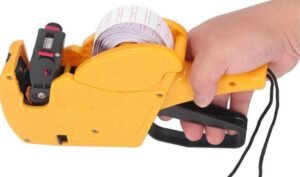

A pharmaceutical label manufacturer conducts business that focuses on designing, creating, producing, and providing labels for various pharma products. Pharma labels have to pass through stringent regulations to ensure that all medications are correctly identified and managed according to standard norms and help in delivering critical information to all healthcare workers and patients.
The Decisive Role of a Pharma Label Manufacturer, Services Offered:
Wide Variety of Label Materials
Pharmaceutical label manufacturers use a vast range of label materials including foils, synthetic films, paper, and metals for diverse applications and durability features. Pharma labels are also required to have qualities such as being tamper-proof, water-resistant, and scratch-proof.
Regulatory & Compliance Services
In addition to these, reputed label manufacturers in India such as Prakash Labels offer perfect solutions to suit speedy and automated label applications to the packaging. Working alongside pharma companies, these label manufacturers support the integration of label processes to streamline their production operations.
Pharmaceutical label manufacturers also look after supply chain management. This involves managing inventory, packaging, and label distribution operations to reach manufacturers’ facilities within the deadline. Pharmaceutical businesses can opt for customized services according to their production scale and requirements.
Over-the-counter Drugs or Medications
OTC medications can treat general health issues such as the common cold, flu, minor body aches, headaches, muscle pain, fever, skin allergies, acidity, and bloating of the stomach. You can get OTC medicines in various forms; ointments, tablets, drops, sprays, and more.
Most often, a prescription from a healthcare specialist is not required to buy these medicines. However, these are medical drugs and you can experience side effects, overdose issues, and drug reactions. Mistakes could be dangerous and may require a visit to the emergency room. Therefore, the most essential aspect of giving or taking OTC medicines is to read and understand their labels.
All the OTC medicine labels have a column called drug facts, wherein all the necessary information is provided about the medicine. The Drug Facts mention the right doses, to whom it should be given, at what time, and for what purpose. The location of drug facts on the labels can be different according to the size and shape of the product. For instance, labels on small OTC containers may need to be peeled back to read it completely.
Pharmaceutical label manufacturers must also take care to give an overview of OTC medication, mostly on the front label.
FAQs
The active ingredients can answer what medicine you are actually taking. Many OTC medicines may contain one or more active ingredients for treating specific symptoms. And the same ingredients can be found in other drugs also. It is advisable to avoid taking two OTC medicines if the same active ingredient is present in both.
The dosage of one teaspoon in terms of a medicine is equivalent to 5 milliliters. Two teaspoons is equivalent to 10 mL. On the other hand, a tablespoon is thrice the size of a teaspoon. So one tablespoon of drug dose can be equal to 15 mL.
The most common OTC medicines include popular pain relievers such as ibuprofen, naproxen, and acetaminophen. There are counter medicines used for indigestion, bloating, and heartburn like cimetidine, lansoprazole, and omeprazole to name a few.
OTC Drug Labels by Prakash Labels
Pharmaceutical label manufacturer veterans like Prakash Labels have gathered vast knowledge and experience over the years in offering the most winning solutions for over-the-counter drug labels. The company knows the compliance layout of the pharma industry and provides customized and industry-standard label printing. Some of their key features include offering OTC drug labels that are easily readable, completely safe, and fully compliant with the current industry standards.